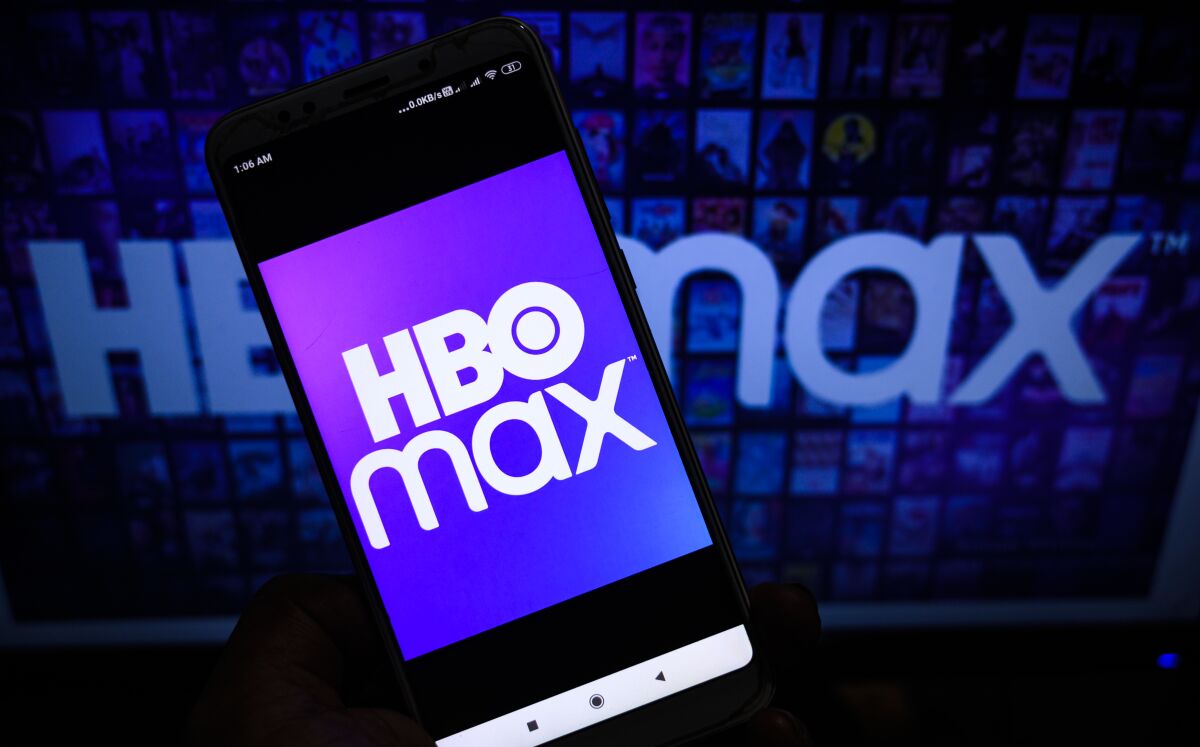HBO Max to be renamed Max in a bid for a bigger streaming audience
Warner Bros. Discovery has stripped “HBO” from its streaming service name, which now will simply be called Max, signaling a new era for the company’s streaming ambitions.
The name change, unveiled Wednesday, comes as Chief Executive David Zaslav seeks to broaden the audience for the company’s nearly 3-year-old streaming service.
The makeover is part of an effort to meld HBO’s prestige programming, including “Succession” and “The White Lotus,” along with Discovery’s mainstream fare such as “Property Brothers,” “Diners, Drive-ins and Dives” and “Murder in the Heartland.”
With the switch, the company hopes to entice new subscribers who might have been put off by HBO’s reputation for elite programming.
“Max is the one to watch,” Zaslav said from a stage at the Warner Bros. stage in Burbank. “It’s streaming’s version of must-see TV.”
The service, which debuts May 23 in the U.S., which charge subscribers $15.99 a month for an ad-free version and $9.99 a month for a version with commercials — just as HBO Max did previously.
A premium tier with high-quality streaming that allows four devices to stream concurrently will cost $19.99 a month.
Current HBO Max subscribers will have immediate access to the new service.
Zaslav — who took the reins of the merger of WarnerMedia and Discover last April — is attempting to turn the page after a bruising year punctuated by thousands of job cuts, controversies created by canceling hundreds of millions of dollars in content, and a lagging stock price.
The dramatic cuts have been aimed at slimming the company, which has about 38,000 employees, and whittling Warner Bros. Discovery’s nearly $50 billion in debt. The huge debt load came courtesy of the smaller Discovery’s consolidation of WarnerMedia, previously owned by AT&T.
The Max revamp, which will be phased in over the next two months, comes as Warner Bros. Discovery and other legacy media companies recognize that the future lies in streaming. But they are struggling to make the transition and to make their streaming businesses profitable.
Warner Bros. Discovery’s direct-to-consumer television businesses — HBO Max, the linear HBO channel and streaming service Discovery+ — lost $1.6 billion in 2022, according to regulatory filings.
Executives have assured investors the unit — which currently has more than 96 million subscribers — will be profitable in two years.
However, the market is crowded with options, including Netflix, Amazon Prime, Paramount+ and Tubi, and the companies are jockeying to make their streaming products stand out.
Steaming services are contending with churn problems, where subscribers cancel after watching their favorite shows and movies. Zaslav hopes to get new customers to sign up and then stick with Max for months — if not years.
When AT&T was in charge four years ago, executives began building the streaming service.
There was a lively debate over its name, according to a former insider because they knew they needed some muscle to compete against such powerful brands as Netflix, Disney, Amazon Prime. The launch team researched various monikers, including Warner Bros., the legendary nearly 100-year-old film studio.
But the research revealed that HBO had the most brand equity of any of its properties, this person said.
Executives planned to widen the programming scope to include Warner Bros. movies and streaming originals, including “The Flight Attendant,” and “12 Dates of Christmas.” So they linked HBO with Max to signal to viewers the service would have more content, including popular mainstream programs, including reruns of “Friends.”
The name Max had detractors at the time, the insider said, in part, because there had been two deadly Boeing Max 737 jet crashes. In addition, HBO’s companion linear channel was Cinemax.
When the service launched, there confusion because there had been multiple incarnations of HBO, including the digital HBO Go and HBO Now. AT&T retired those, keeping HBO Max as the standard bearer but still, the service was more expensive than its rivals.
The move to Max has been in the works for nearly a year, ever since Zaslav and his lieutenants assumed control of the media company.
But the Discovery executives faced a dilemma, post-merger. The streaming service they launched nearly two years ago, Discovery+, proved to be an unexpected hit with consumers who loved Discovery’s distinct unscripted and lifestyle shows and the low price-point.
Warner Bros. Discovery plans to continue to sell Discovery+ as a stand-alone streaming service in the U.S. and internationally.
Previously, executives have said they expect to roll out the expanded product in Latin America later in the year and in Europe next year. Warner Bros. Discovery plans to offer a plan with limited ads as well as the commercial-free version in several markets.

Previous HBO Max logo, in a photo illustration
(NurPhoto / NurPhoto via Getty Images)
Media companies are struggling to create a new profit center in streaming to ultimately replace the lucrative fees the firms have traditionally received by selling their channels to the cable bundle. But customers have been canceling their pay-TV packages at alarming rates.
Warner Bros. Discovery has financial exposure to cord-cutting because of its ownership of nearly a dozen cable channels, including CNN, TBS, Cartoon Network, TBS, Animal Planet, HGTV, Food Network and TLC, that rely on revenue from cable fees.
For all the latest Entertainment News Click Here
For the latest news and updates, follow us on Google News.
